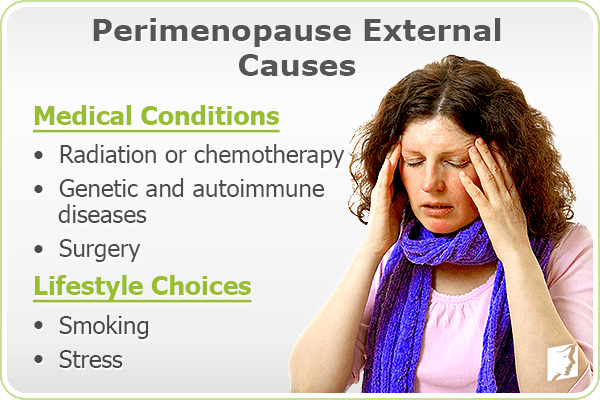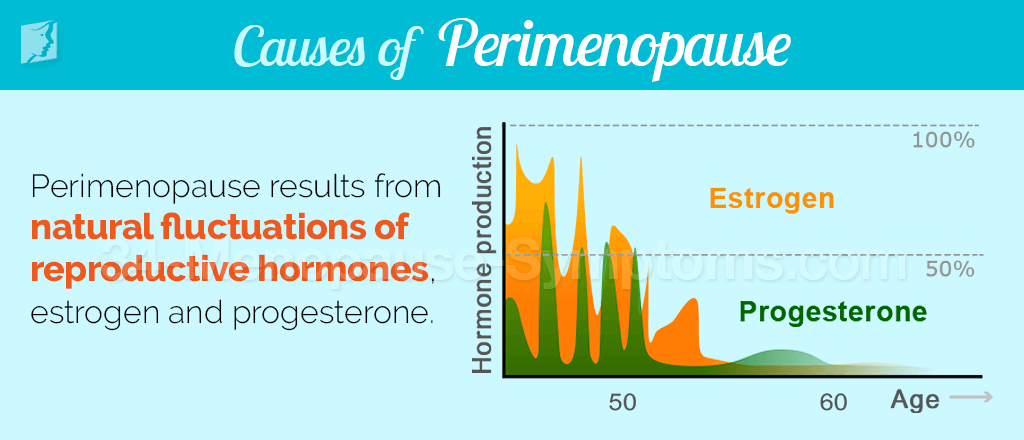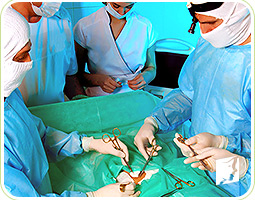
All women know that menopause is a natural, inevitable stage of life. As with any other major change in their reproductive functions, women also know that hormones are at the very root of the changes they experience, especially during the most symptomatic stage of the menopause process: perimenopause.
Besides the hormonal causes, however, experts have identified other external factors that can influence the onset of perimenopause. In the following sections, women can find detailed information regarding the hormonal causes - as well as the external causes - of the second stage in the menopause process.
Hormonal Causes of Perimenopause
The female body is very complex. It relies on a very delicate balance of hormones to perform basic bodily functions, including regulating body temperature, releasing eggs, and managing other vital aspects of health.
When perimenopause starts, the body experiences a natural decline in hormone production. Vital hormones in the female body - such as estrogen, progesterone, and testosterone - fluctuate and gradually decline, leading to the occurrence of many perimenopause symptoms.
For up to 10 years, women may experience the effects of hormonal imbalance. As a result of the low levels of hormones in the body, the ovaries no longer release mature eggs. This sends women into the post-reproductive stage of life, generally beginning in their 40s - 50s. However, until menstruation has ceased for one year, pregnancy is still a possibility.

To learn more about causes of perimenopause, click on the following link: perimenopause and hormones.
External Causes
Although perimenopause is typically triggered by hormonal fluctuations, there are other factors that can lead to hormone imbalances, as well as the onset of perimenopause. Some external causes include lifestyle choices and certain medical conditions described below:
Lifestyle choices
-

Smoking. According to many studies, women who smoke go through perimenopause earlier than women who don't. This is in part because the chemicals in cigarettes lower estrogen levels.
Stress. Studies have shown that periods of prolonged stress - such as stress triggered by financial or emotional strain - can cause the body to enter perimenopause earlier than it normally would.
Medical conditions
-

Radiation or chemotherapy. While both of these treatments can damage the ovaries and accelerate the occurrence of symptoms, radiation and chemotherapy do not automatically trigger perimenopause. Depending on overall health and genetics, some women will either experience symptoms, or it is possible that the ovaries will not be greatly impacted and continue to function in a normal range.
Surgery. When a woman needs to have both of her ovaries removed (a bilateral oophorectomy), she may abruptly begin to experience perimenopause symptoms.
Genetic and autoimmune diseases. Conditions such as Turner's syndrome or thyroid disease can trigger the onset of perimenopause.
Whether perimenopause is due to hormonal or external causes, the symptoms women experience in this stage are quite similar, sometimes only varying in severity and frequency. For a comprehensive list of common symptoms, please click the following link about perimenopause symptoms.
Sources
- BMJ Group. "Menopause: What is it?" Patient Leaflet. 2007.
- Hopkins, Virginia. Lee, John R. M.D. What Your Doctor May Not Tell You About Menopause. New York: Warner Books Inc., 1996.
- Love, Susan M.D. Menopause and Hormone Book. New York: Three Rivers Press, 2003.
- Martin, Raquel. The Estrogen Alternative. Rochester, VT: Healing Arts Press, 2000.



